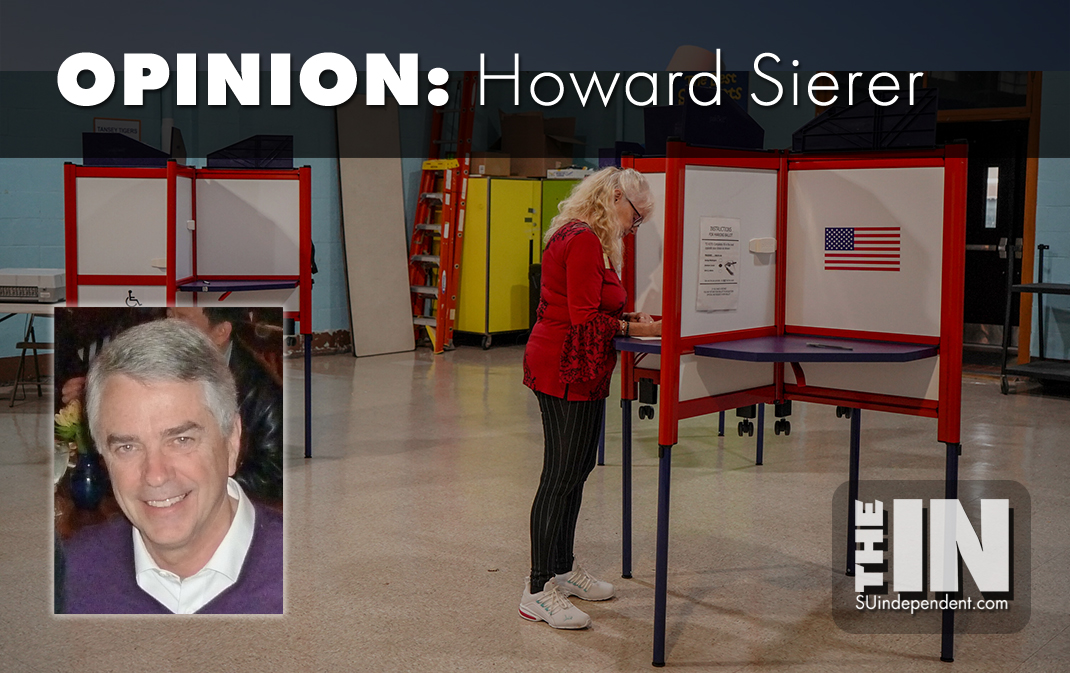
Elections with Dignity, Not Contempt
– By Howard Sierer –
Social scientists at the University of Utah have created an election “Dignity Index” with the intent of scoring – and hopefully inspiring – healthy political debate without contempt. While it could use some improvement, we all could learn something from their efforts.
The index’s website encourages all who enter to take its pledge: “There is no America without democracy, no democracy without healthy debate, and no healthy debate without dignity; therefore, I pledge to do more to treat others with dignity and not with contempt.”
Campaign speeches, debates and advertisements are scored on a scale of 1 to 8. Per the site’s creators, “Level one escalates from violent words to violent actions. It’s a combination of feeling the other side is less than human and calling for or approving violence.”
Level 8 is sweetness and light: “I can see myself as part of every group, I refuse to hate anyone, and I offer dignity to everyone.”
The rubber meets the road between levels 4 and 5 and that’s where things get subjective. Per the index, “level four mocks and attacks the other side’s background, their beliefs, their commitment, their competence, their performance.”
In other words, saying almost anything that an index scorer sees as negative about one’s opponent gets a level four score or lower. I find that incompatible with a contest in which there can be only one person elected. If I didn’t think there were problems with an opponent’s “competence or performance,” why would I run?
Level five “listens to the other side’s point of view and respectfully explains their own goals, views, and plans.” What’s missing here is a “respectful” debate between one set of views and those of an opponent. If both candidates, for example, claim their policies would help working people, most of us wouldn’t be able to distinguish the pros and cons of either policy without comparisons that claim to explain why one policy is superior to another.
To me there is an important gap between levels four and five. Filling that gap would recognize that candidates could point out what they see as mistaken policies or erroneous statements by their opponents without attacking them personally.
As an opinion columnist, I expect to be criticized by readers who disagree with me. I object or respond to criticism only when a commenter’s facts are incorrect or when a commenter makes what is called an “ad hominem” attack.
Ad hominem is Latin meaning “to the person” and refers to comments “directed against a person rather than the position they are maintaining.” Ad hominem attacks are recognized as a weak fallback for those unable to counter the substance of an opponent’s argument.
I agree wholeheartedly that ad hominem attacks do not belong in civil discourse or in political campaigns. The index’s level one through four are applied to political statements that contain ad hominem attacks in one form or another.
But there are ways to turn these ad hominem political statements into respectful, dignified disagreements that apply to opponents’ words or actions, not their character. Take the following examples from the Lee vs. McMullin debate on October 18th:
Lee: “So it’s not surprising to me that [McMullin] would come here today and spout not only lies but lies that are specific to the leftist cause.”
A possible revision: “I am disappointed that McMullin made several statements that were not true and not supported by the record.”
McMullin: “You’re doing a tremendous disservice to this country. Senator Lee, you betrayed your oath to the Constitution with this.”
A possible revision: “I believe voters will see that your actions were inconsistent with the Constitution.”
In my examples above, I have attempted to allow the candidate to contrast his views with those of his opponent by challenging his opponent’s statement while not attacking the candidate personally. You can probably do better.
You might review the index’s scoring as shown in the debate hyperlink above and see how you might change some of both Lee’s and McMullin’s low-scoring comments to rephrase their ad hominem content.
The index gives higher scores to statements that are increasingly substance-free and show agreement with members of the opposing party. Note my use of the word “opposing” instead of “other.” Any candidate that doesn’t oppose – with dignity, of course – some or many of the opposition’s stances has no business running.
I applaud the Dignity Index’s focus on encouraging candidates to eliminate ad hominem attacks but the index needs a level 4.5 that recognizes political debate and allows dignified contrasting views to be presented.
Viewpoints and perspectives expressed throughout The Independent are those of the individual contributors. They do not necessarily reflect those held by the staff of The Independent or our advertising sponsors. Your comments, rebuttals, and contributions are welcome in accordance with our Terms of Service. Please be respectful and abide by our Community Rules. If you have privacy concerns you can view our Privacy Policy here. Thank you!
Click here to submit an article, guest opinion piece, or a Letter to the Editor




